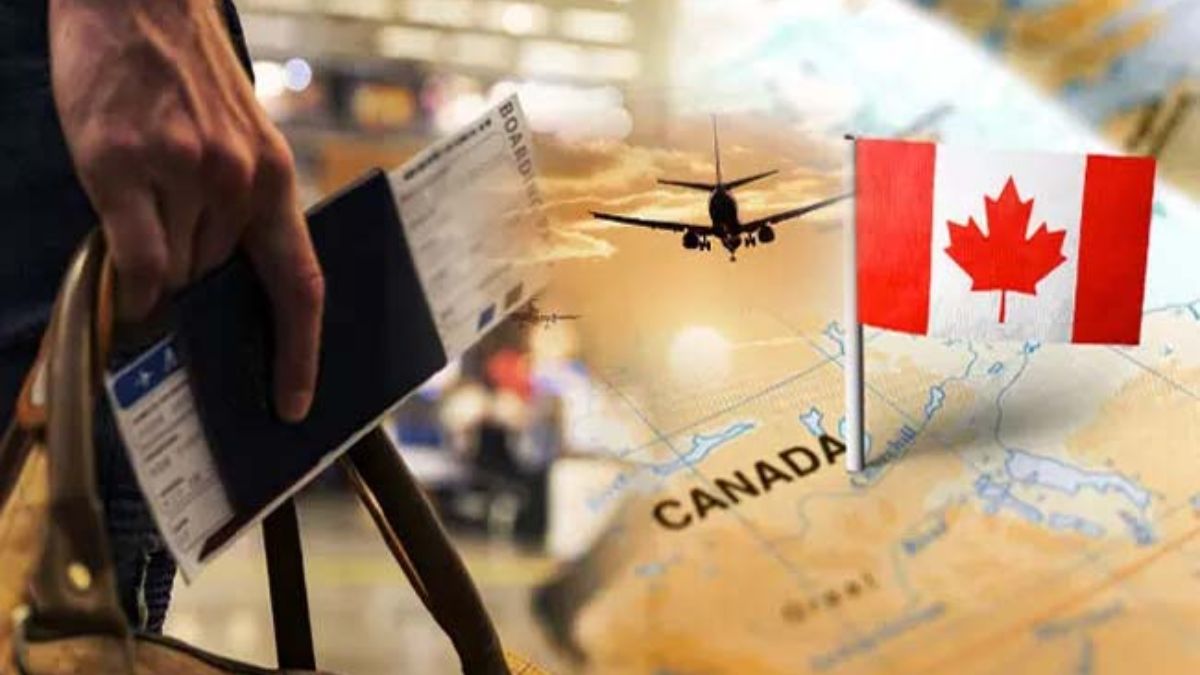For decades, Canada’s Spousal Sponsorship Program has been one of the most recognized pathways for family reunification, giving Canadian citizens and permanent residents the chance to bring their loved ones home. But in 2025, this program has seen major changes, sparking confusion, debates, and questions among thousands of applicants worldwide.
The updates, which officially came into force on January 21, 2025, are aimed at balancing the needs of families with the country’s broader challenges—like labour shortages, housing pressure, and immigration system efficiency. While the fundamental promise of reuniting couples remains intact, the Canada Spouse Visa new rules mean applicants will now face stricter documentation requirements, modified eligibility for work permits, and updated fee structures.
This report explores the new rules in depth, including eligibility standards, payment schedules, processing times, and policy updates—to help families understand what lies ahead in 2025 and beyond.
Why the New Rules Were Introduced
Immigration, Refugees and Citizenship Canada (IRCC) explained that the reforms were necessary to regulate temporary residents, streamline application processing, and align spousal sponsorship with Canada’s labour market needs.
The government has also emphasized the importance of ensuring that newcomers entering under family categories do not worsen existing economic pressures—particularly in housing and health services. Instead, the goal is to design a system that balances compassion with sustainability.
Canada Spouse Visa New Rules 2025 – Overview
- Department: Immigration, Refugees and Citizenship Canada (IRCC)
- Program Name: Spouse Visa / Spousal Open Work Permit (SOWP)
- Fees: Permanent Sponsorship Fee CAD \$1050; SOWP CAD \$255; Biometrics CAD \$85
- Processing Time: 10–14 months on average (depending on application type)
- Benefits: Legal residence, pathway to permanent residency, access to open work permits for eligible spouses
- Official Website: www.canada.ca
Eligibility Criteria for Sponsorship
To sponsor a spouse or partner in 2025, Canadians must meet specific conditions designed to ensure the genuineness of applications and the financial stability of sponsors.
- Sponsor Requirements:
- Must be 18 years or older.
- Must be a Canadian citizen or permanent resident.
- Cannot be under removal orders, bankrupt, or serving a prison sentence.
- Must sign a financial undertaking to support the spouse for three years after permanent residency is granted.
- Partner Requirements:
- Must be 18 years or older.
- Relationship must be genuine (proof includes joint bank accounts, utility bills, photographs, communication logs).
- Must be admissible—no serious criminal history or medical risks.
- Children under 22 can accompany the partner as dependents.
Inland vs. Outland Applications
IRCC recognizes two main types of spousal sponsorship:
- Inland Sponsorship
- Applicant and sponsor live together in Canada.
- Partner must have valid temporary status (visitor, student, or worker).
- Eligible to apply for a Spousal Open Work Permit (SOWP) if conditions are met.
- Outland Sponsorship
- Partner lives outside Canada.
- Processing typically faster (10–12 months).
- No open work permit until the partner arrives as a permanent resident.
Major Change: Work Permit Rules in 2025
One of the most significant changes involves the Spousal Open Work Permit (SOWP).
Under the new rules:
- Only spouses of applicants in master’s programs (16+ months), PhDs, or professional programs like medicine and law qualify.
- Spouses of undergraduate students are no longer automatically eligible.
- For work-based sponsorships, the sponsor’s job must fall under:
- TEER 0 or 1 (high-skill) categories, or
- Selected TEER 2 or 3 roles facing shortages, such as construction and science fields.
- The sponsor must also have at least 16 months remaining on their work or study permit.
This shift has already led to a rise in SOWP refusals—up nearly 20% since the start of the year, according to immigration lawyers.
Payment Schedule for Spousal Sponsorship (2025)
Applicants should prepare for a variety of fees throughout the process:
| Fee Type | Amount (CAD) | Who Pays | When to Pay | Notes |
|---|---|---|---|---|
| Sponsorship Fee | $75 | Sponsor | Submission | Covers sponsor eligibility review. |
| PR Processing Fee | $490 | Partner | Submission | +$170 per dependent child. |
| Right of PR Fee | $575 | Partner | At submission or before finalization | Paying early can speed final approval. |
| Biometrics | $85 (single) / $170 (family) | All applicants aged 14–79 | Within 30 days of request | Includes fingerprints and photo. |
| Quebec Add-On (if applicable) | $280 (sponsor) + $305 (partner) | Both | After federal approval | Paid to Quebec’s MIFI for provincial processing. |
Combined, most families should budget around CAD \$2,000–2,500 for full processing, excluding medical exams and document translation costs.
Processing Times Under New Rules
IRCC has pledged to improve efficiency, aiming for 80% of applications processed within 12 months. Current trends show:
- Inland applications: 14 months on average.
- Outland applications: 10–12 months.
- Backlogs: Reduced by 15% mid-2025 after more visa officers were deployed.
Applicants are advised to submit fully completed, digital applications with clear supporting documentation to avoid delays.
Digital-First Applications
As of January 21, 2025, all applications must be submitted digitally.
- AI tools are now used to flag incomplete or fraudulent files.
- Paper applications are no longer accepted.
- Applicants are encouraged to prepare high-quality scans of all required documents, including proof of relationship and financial statements.
Latest Updates in 2025
- Backlog Reduction: IRCC hired more officers, cutting waitlists by 15%.
- Fraud Detection: AI monitoring reduced fake marriages and incomplete applications.
- Quota Adjustments: Family-class immigration targets reduced by 25% to balance temporary resident inflows. However, spousal sponsorship levels remain steady at 70,000 approvals annually.
- Sector-Specific Boost: New home care pilot programs (launched March 31, 2025) allow spouses working in caregiving roles to transition to permanent residency more easily.
Why These Changes Matter
While the essence of the program—family reunification—remains unchanged, the new Canada Spouse Visa rules reflect a balancing act. On one side is the human element: the desire of couples and families to be together. On the other is the government’s obligation to manage immigration levels, labour shortages, and housing supply.
For couples, this means being more prepared than ever. Detailed documentation, proof of genuine relationships, and awareness of new work permit limits are now critical to avoiding rejection or delays.
Practical Advice for Applicants
- Double-check eligibility. Review sponsor and partner requirements before applying.
- Prepare documents early. Joint leases, bills, photos, and communication logs are essential.
- Budget for fees. Expect to spend at least CAD \$2,000+ before medical and translation costs.
- Monitor your status. Use IRCC’s online portal for updates.
- Beware of scams. IRCC never asks for payment outside official channels.
5 FAQs
Q1. What is the sponsorship fee for Canada’s spouse visa in 2025?
The sponsorship fee is CAD \$75, with additional processing and biometrics charges.
Q2. Can spouses of undergraduate students still get open work permits in 2025?
No. Only spouses of master’s, PhD, and professional program students qualify under the new rules.
Q3. How long does spousal sponsorship take in 2025?
Processing averages 10–14 months, depending on whether the application is inland or outland.
Q4. Do I need to submit a paper application?
No. All applications are now digital-only under IRCC’s 2025 rules.
Q5. How many spousal sponsorship applications are approved annually?
IRCC continues to target 70,000 approvals per year for spousal sponsorships.







